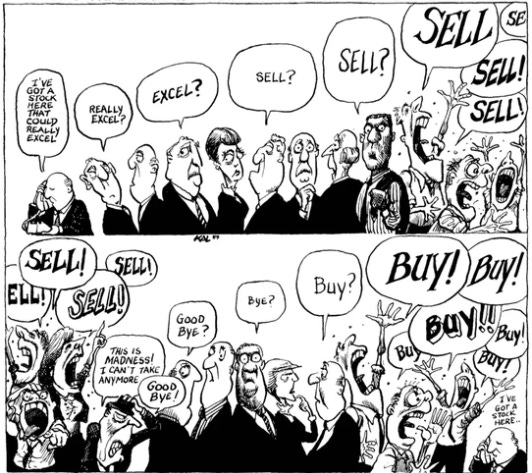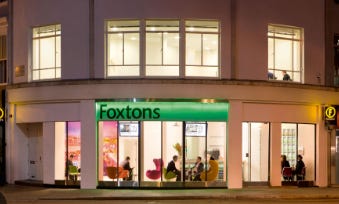Ringing the bell - for a market top or the end of an era?
Share sales by insiders can signal the end of a cycle. When owners sell a whole company, it can signify a more significant change in market dynamics.
Economists would have us believe that investors are rational agents who enter the market only and always to pursue their own maximum utility. The gut-wrenching equity volatility of the last week suggests that reality is not quite so. Greed, panic and herd mentality seem to be the order of the day more often than not.
Behind all the volatility, serious people are selling serious amounts of stock. Warren Buffett’s Berkshire Hathaway (ticker BRK) sold an additional 390mm shares of Apple (ticker AAPL) in Q2 2024 after selling 115mm shares in Q1. Berkshire now has $277b in cash, much of which is invested in T-Bills, making the company a larger net holder of short-dated government paper than the US Federal Reserve1.
Many insiders are also selling. Jensen Huang, CEO of AI high-flyer Nvidia (ticker NVDA) sold $323mm of stock in July, taking his sales since 2020 to a cool $1.5b or so2. Blackrock (ticker BLK) CEO Larry Fink, lord of the exchange-traded fund, recently sold $24mm of stock3, while JP Morgan (ticker JPM) CEO Jamie Dimon has sold $183mm of stock in the past few years, his first sales since starting at the company back in 20064.
While Mr Dimon’s selling is billed as part of a wider ‘transition’ period as his tenure as the head of America’s biggest bank draws to a close, insider selling ought to be a key indicator to long-term investors about the potential end of a cycle. This is well known. Much more interesting is what is signalled when an insider puts a whole company up for sale. Can this mean the end of an era?
There is always a big deal that marks the top of a cycle, and the timing thus seems perfect in retrospect. In February 2000, a month before the dotcom bubble peaked, Vodafone bought Mannesmann for $190b. In October 2007, Royal Bank of Scotland (RBS) bought Dutch Bank ABN Amro in a transaction which ultimately bankrupted the acquiror and necessitated a government bailout.
What makes the RBS/ABN deal so extraordinary is that it occurred months after the credit crunch had started, and also after ABN had sold its valuable investment banking arm LaSalle to Bank of America as part of its defence tactics to shrug off the RBS’ bid5. RBS ploughed on regardless. Fred the Shred, take a bow.
In May 2007, some five months before RBS’ fateful deal, private equity firm BC Partners bought the UK estate agent company Foxtons for £360mm. While less spectacular in its consequences than the ABN deal, this transaction didn’t just mark the top of a cycle, it also in many ways marked the end of an era.
Estate agencies work on flow not stock, and BC Partners’ downside estimates on the deal was a drop of 30% in transactions before the deal made no sense. A year later, Foxtons’ deal flow had dropped 50-70%, making the deal an absolute dud6. The real estate private equity guys had got it totally wrong.
Jon Hunt, who founded Foxtons as a two-man operation in Notting Hill in 1981, had played a blinder, riding the London property boom all the way to the top before cashing out. Fans of the 1999 film Notting Hill might not know what a dump that part of West London was in the early 1980s, so Mr Hunt’s far-sightedness ought to be commended as much as his savvy timing.
The end of an era? UK home ownership levels rose from about 25% in 1914 to peak just under 70% in 2007 before falling back, never to touch the 2007 high again. Since then, programmes like Help-to-Buy (a government sponsored initiative to help first time buyers) have been introduced, but these seem to be more of a boon to housebuilders than homeowners.
Since then, housing has more than ever become a social issue and thus a political one, affecting household formation and with it, demographics. What is clear is that the era of affordable housing that fuelled the rally which companies like Foxtons rode from the 1980s to the early 2000s really ended in 2007, and what followed was an uneasy truce enabled by government initiatives and central bank interest-rate suppression (at least until inflation returned).
Fast forward to 2024, and a private equity consortium led by CVC Partners is buying another UK company (Hargreaves Lansdown) in what might turn out to be another ‘end of an era’ transaction.
Admittedly, the Hargreaves Lansdown deal isn’t signalling the top-tick in the market. At £11.40, the private equity offer is nowhere near the company’s peak share price of around £24 reached back in 2019. Since then, the company has struggled, not least with an assault on its strategy by Peter Hargreaves, the founder and largest shareholder, who accused the then CEO Chris Hill of focusing on unproductive parts of the business like HR and investor advice while ignoring technological changes implemented by rivals7. The Woodford Investment Management trust scandal of 2019 also severely dented the company’s reputation8.
Mr Hargreaves is not quite selling his entire stake either. While he’s receiving around £535mm in cash, he’ll retain around half his 19.8% stake in an unlisted entity. His co-founder, Stephen Lansdown, is selling his entire 5.9% stake for £309mm9.
Like Foxtons, Hargreaves Lansdown was founded in 1981, this time in a bedroom in Bristol as a company providing financial advice. Like Foxtons riding the great house price boom, Hargreaves rode the train of financialisation and the asset-price boom that has characterised the last 40 years.
In the UK, the new Labour government’s cancelling of universal winter fuel allowances likely marks a turning point at which not only the rich but also the elderly rich increasingly become the principal bearers of the cost of maintaining government policy, marking a radical shift from pensioner-friendly policies like the triple-lock state pension adjustment of recent years10.
The financial climate seems to be changing as well. The baby-boomer generation, often vilified for benefitting egregiously from the great asset-price bubbles of recent decades, is not only retiring or already retired, but also increasingly drawing down their savings as a result. Hargreaves Lansdown, with its easy-to-use website and friendly call centres, has been one of the key vehicles by which these dastardly oldies have accumulated their loot.
One wonders too whether the next generation of tokenised and digitalised assets will make companies like Hargreaves increasingly look like investment dinosaurs as new technology alters the relationship between companies, their owners and the manner in which ownership occurs.
Then there is the wider issue of financialisation and the build up of debt that has gone with it. Companies like Foxtons (housing assets) and Hargreaves (financial assets more generally) have been beneficiaries of the great expansion of the financial economy and the debt that has inflated the assets behind it.
Until a few years ago, this boom, starting in the early 1980s, was fuelled by falling inflation and with it, falling interest rates. For various reasons, that process seems to be going into reverse.
Perhaps the end of the great bond and debt bull market which is being ushered in by higher inflation and higher policy rates is the real end of an era for companies like Hargreaves Lansdown. Let’s hope CVC Partners don’t end up as bag-holders like BC Partners did back in 2007.
If you enjoyed this post, please click on the subscribe button below to get the next instalment sent directly to your inbox. So cheap it’s free…
Yun Li, Warren Buffett raises Berkshire cash level to record $277 billion after slashing stock holdings, CNBC, 03/08/2024.
Biz Carson, Nvidia’s Huang Sold $323 Million of Stock in July Before Decline, Bloomberg, 05/08/2024.
BlackRock Inc (BLK) CEO Laurence Fink Sells 29,450 Shares, Yahoo Finance, 09/08/2024.
Amanda Gerut, Jamie Dimon cashes out more JPMorgan stock, bringing his total share sales this year to $183 million, Fortune Magazine, 16/04/2024.
ABN completes sale of LaSalle to Bank of America, Reuters, 01/10/2007.
Martin Arnold, Doomsday scenario underplayed Foxtons woe, Financial Times, 12/09/2008.
Emma Dunkley, Peter Hargreaves blames former management ‘shambles’ for Hargreaves Lansdown share slump, Financial Times, 01/06/2024.
Kirstin Ridley and Carolyn Cohn, UK’s Hargreaves hit by lawsuit over Woodford fund failure, Reuters, 17/02/2022.
Ben Martin, Hargreaves Lansdown agrees £5.4 billion takeover, The Times, 09/08/2024.
Mitchell Labiak & Faisal Islam, Winter Fuel payments scrapped for millions, BBC, 29/07/2024.






